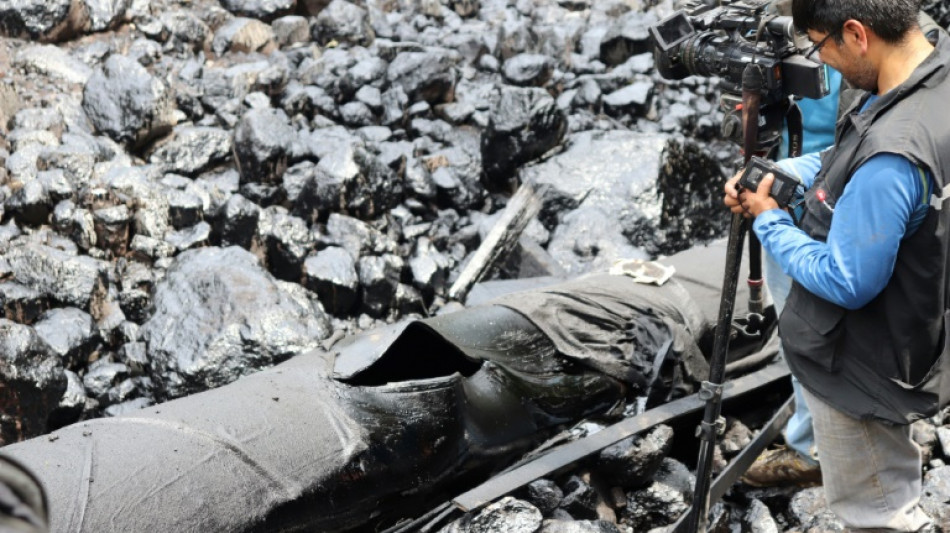

Oil spill pollutes nature reserve in Ecuadoran Amazon
An oil spill in eastern Ecuador has reached a nature reserve and polluted a river that supplies water to indigenous communities, the country's environmental ministry said Monday.
Nearly two hectares (five acres) of a protected area of the Cayambe-Coca national park have been contaminated, as well as the Coca river -- one of the biggest in the Ecuadoran Amazon, the ministry said in a statement.
The park of some 400,000 hectares is home to a wide variety of protected animals and holds important water reserves.
Heavy rains caused a mudslide in the eastern Napo province on Friday, during which a rock struck and ruptured a pipeline owned by private company OCP Ecuador.
Neither the government nor OCP Ecuador have quantified the extent of the spill, but the environmental authority has described it as a "major" pollution event.
"Our staff are monitoring 210 kilometers (130 miles) of the Coca River and its tributaries and coordinating containment and remediation where traces of hydrocarbon are identified," the ministry said.
Emergency committees, it added, were deployed to Napo province and neighboring Orellana to "guarantee safe water for consumption of the population".
- 'Water cannot be used' -
OCP Ecuador said Sunday it had begun repairing the pipeline and that "crude oil has been collected in retention pools to be taken to the Lago Agrio station in tanker trucks."
OCP's pipelines can transport up to 450,000 barrels a day from the Amazon to ports on the Pacific coast, although the company only extracted 160,000 barrels between January and November 2021.
In May 2020 in the same area, a mudslide damaged pipelines, resulting in 15,000 barrels of oil polluting three Amazon basin rivers, affecting several riverside communities.
Indigenous organizations and environmental NGOs insist on more information.
"We demand to know the number of barrels spilled and what the process of delivery of water and food will be for the communities," the Confederation of Indigenous Nationalities of the Ecuadorian Amazon (Confeniae) said on Twitter.
"It is clear that the river water cannot be used or consumed," it added.
Crude petroleum is Ecuador's biggest export product. Between January and November 2021, the country extracted 494,000 barrels per day.
The oil leak is the second to mar South American ecosystems in two weeks, after nearly 12,000 barrels of crude spilled into the sea off Peru on January 15.
The spill, described as an "ecological disaster" by the Peruvian government, happened when a tanker was unloading oil at a refinery owned by Spanish company Repsol.
It polluted beaches, killed wildlife and robbed fishermen of their livelihood.
On Monday, the government in Lima ordered Repsol to freeze the transfer of oil between ships and the refinery "until technical guarantees are given that no other damage will occur in the Peruvian sea."
On Friday, the Peruvian justice system banned four Repsol executives from leaving the country for 18 months and ordered the seizure of the tanker involved.
burs-mlr/to
V.Bertemes--LiLuX



